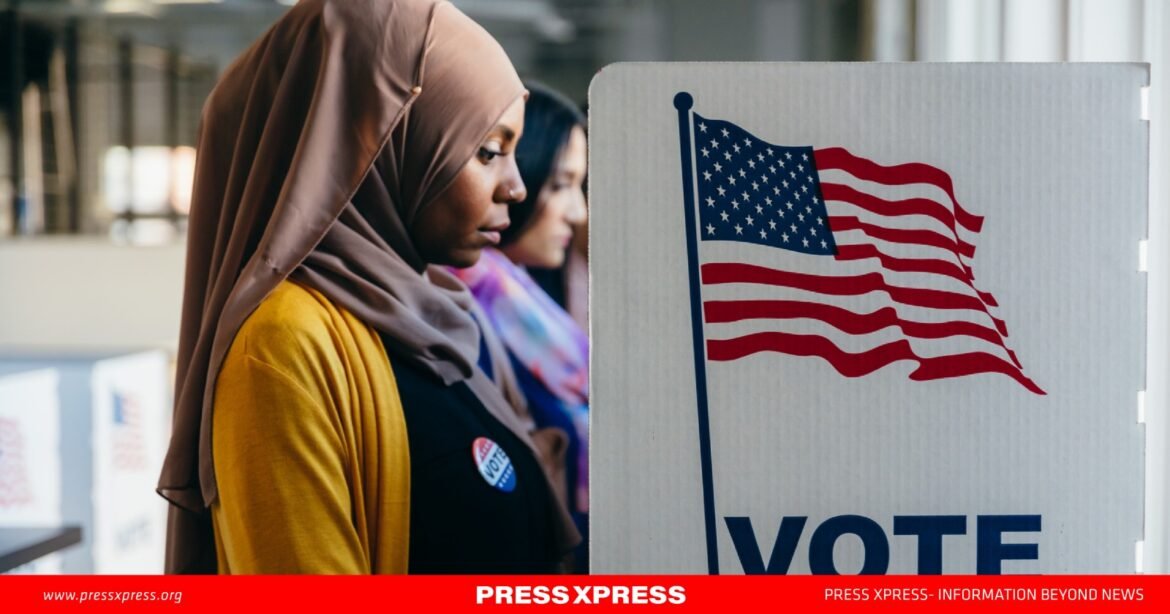In the upcoming US election, American Muslim voters find themselves in a unique position of influence. This year’s election presents significant political choices, with issues ranging from domestic civil rights to foreign policy stances on Gaza’s ongoing crisis. The American Muslim 2024 Election Task Force, a coalition of national political organizations, has taken a firm stance on endorsing candidates who support just policies. Among these candidates, Green Party nominee Dr. Jill Stein, Justice for All nominee Dr. Cornel West, and Libertarian Party candidate Chase Oliver have gained attention for their commitment to a permanent ceasefire in Gaza and advocating for a U.S. arms embargo on Israel.
While the American Muslim Task Force commends these candidates for their positions, they have notably withheld support for Vice President Kamala Harris due to her lack of commitment to changing current U.S. policies on Israel’s actions in Gaza. The task force also vehemently opposes former President Donald Trump’s candidacy, condemning his divisive rhetoric and pro-Israel stance. This election is a decisive moment for American Muslims, not only in influencing the outcome of the presidential race but also in shaping down-ballot races that impact their local communities and the broader national political landscape.

The Task Force’s Decision
The American Muslim 2024 Election Task Force’s endorsement of third-party candidates reflects a shift away from the traditional two-party system. For the first time, both Dr. West and Dr. Stein have selected Muslim vice-presidential candidates, a symbolic move that resonates with many in the Muslim community. The task force’s primary concern is U.S. foreign policy, specifically the ongoing genocide in Gaza, a term they use to describe Israel’s military actions.
Polling indicates that a substantial number of American Muslim voters, particularly in key swing states, may withhold their support for Vice President Harris unless she changes her stance on Gaza. The task force’s call for an arms embargo and a permanent ceasefire aligns with growing dissatisfaction among Muslim voters regarding the U.S. government’s unwavering support for Israel. This discontent reflects the broader Muslim community’s demand for justice and accountability in both domestic and foreign policies, emphasizing the importance of voting strategically in the 2024 election.

Trump’s Candidacy
Former President Donald Trump’s candidacy poses a stark contrast to the justice-oriented values that the American Muslim community seeks. Trump’s rhetoric, particularly his use of inflammatory language against Haitian and Latino migrants and Palestinians, has drawn widespread condemnation. His unwavering support for Israel’s aggressive military actions in Gaza has further alienated Muslim voters. The task force has unequivocally recommended that no American Muslim voters support Trump, citing his divisive tactics and his disregard for humanitarian issues in the Middle East.
The task force also highlights Trump’s attempts to incite racial tension within the U.S., which is at odds with the principles of civil rights and equality that resonate with Muslim voters. His candidacy, while still supported by a segment of the American electorate, remains a significant concern for those advocating for social justice, racial equality, and a humane foreign policy. For many American Muslims, Trump represents a threat to these core values.
Strategic Voting
While much attention is focused on the presidential race, the task force emphasizes the importance of down-ballot voting in local and national elections. From city council seats to Senate races, American Muslims have the potential to influence critical issues that impact their communities directly. Voting for candidates who support civil rights, religious freedom, and freedom of speech is essential in advancing the political power of the American Muslim community.
The task force urges voters to consider candidates’ stances on local ceasefire resolutions and protests against the Gaza conflict when making their decisions. By strategically supporting candidates who advocate for justice at all levels of government, American Muslims can continue to expand their political influence and push for policies that align with their values.
The Long-Term Impact
The 2024 election is not just a pivotal moment for American Muslims; it is a step in a long-term effort to ensure that the U.S. government adopts just policies, both domestically and internationally. The task force believes that by voting for candidates who support a ceasefire in Gaza and oppose the U.S. arms trade with Israel, American Muslims can play a critical role in shaping future U.S. policies.
The task force’s recommendations serve as a call to action for all eligible Muslim voters to participate in the 2024 election. Whether they choose to vote for third-party candidates or use their vote to influence local races, American Muslims are urged to take an active role in the political process. This election marks an opportunity for the community to advance its long-standing goals of justice, equality, and peace, both in the U.S. and abroad.
The American Muslim community’s growing political power gives them the potential to influence key races in 2024, but this influence must be exercised strategically. By aligning themselves with candidates who promote just policies and oppose the Gaza genocide, American Muslims can help shape the future of U.S. politics in a way that reflects their values and concerns.


